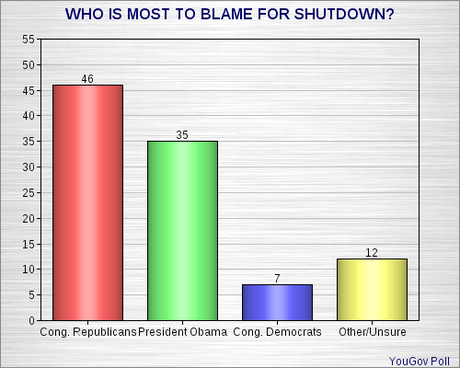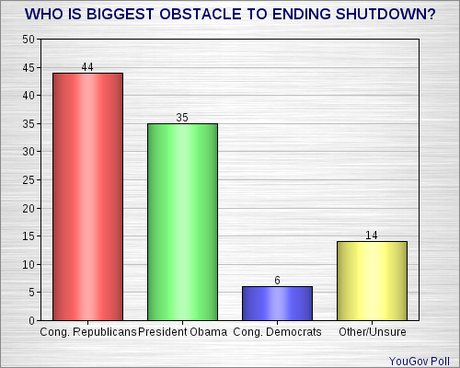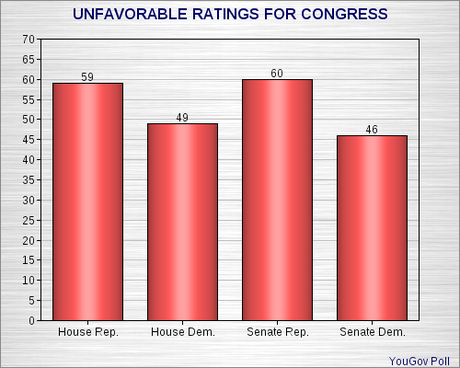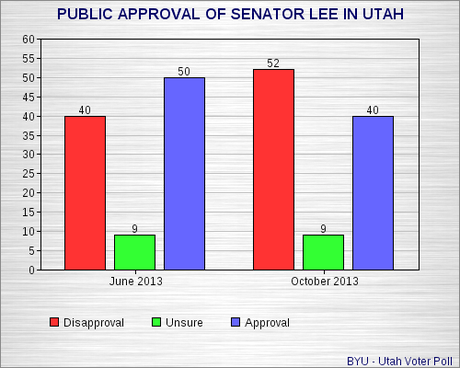

 We are now in the second week of a government shutdown, and the GOP is still taking it on the chin for doing it. They had hoped to blame the shutdown on Democrats or the president, but so far that is not happening. Poll after poll has shown the public blames the Republicans for the shutdown (even though they're not real happy with anyone in Washington).
We are now in the second week of a government shutdown, and the GOP is still taking it on the chin for doing it. They had hoped to blame the shutdown on Democrats or the president, but so far that is not happening. Poll after poll has shown the public blames the Republicans for the shutdown (even though they're not real happy with anyone in Washington).In fact, the GOP is now starting to be abandoned by some of their friends (like Wall Street and ultra-rich contributors such as the Koch brothers) -- who are starting to get nervous about an extended shutdown, and the fact that it could merge with the debt ceiling issue (which is coming up very soon). There is some talk now of passing a short (maybe 6 week long) extension of the debt ceiling among Republicans, but that wouldn't really solve anything. It would just kick that political can a little further down the road so the Republicans could hold out longer on the shutdown (hoping to get more concessions).
The question now though seems to be -- how long can the GOP hold out and keep the government shut down? The president and the Senate Democrats seem to have dug in and are refusing to delay Obamacare or give the GOP more cuts to the budget, just to get the government running again. The Dems know that once you give in to this type of blackmail, it will be tried again and again -- and will become the way things are done in government (which is totally unacceptable).
As the YouGov Poll shows in the charts above, it is the GOP brand that is being hurt the most by continuing the shutdown. And if it goes on much longer, it will seriously damage the economy -- and give the GOP an enormous amount of bridges to rebuild before the next election. There has already been damage done, and the damage will just continue to grow as long as the shutdown persists.
This damage is not limited to Republicans in "competitive" districts or states either. Note in the chart below what has happened to the approval rating of one of the main teabaggers in Congress -- Senator Mike Lee of Utah. Back in June of this year, he had a pretty good approval rating with 50% of voters approving of his job performance and 40% disapproving. But since the shutdown (and his support of it), those numbers have flipped. He now has only 40% approval and 52% disapproval.
 The YouGov Poll was conducted on October 7th and 8th of 1,000 nationwide adults, with a margin of error of 4.3 points.
The YouGov Poll was conducted on October 7th and 8th of 1,000 nationwide adults, with a margin of error of 4.3 points.The BYU-Utah Voter Poll was done between October 2nd and 7th of 1,040 Utah voters, with a margin of error of 3.2 points.

